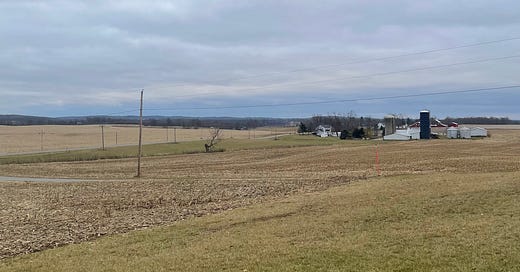My grandpa, Wendell Shipley, died on April 3, 2018 on the Tuesday after Easter. His death followed a slow and very troubling one-sided fight with dementia. My grandpa loved his four grandsons dearly, and I would often feel very disturbed while watching his mental decline. The sickness did not just take his ability to remember recent events–it seemed to manipulate and destroy his personality. This is what I found so troubling. His very identity, character, and attitude were altered as his physical brain deteriorated. Even decades of sanctification (he was a godly man) seemed to be taken away as he became increasingly irritable and petty as if the sickness could even take away the righteousness that God Himself had developed in this extremely kind and giving man. It scared me; the human soul became frightfully fragile to me.
Because of this, I was forced to ask some simple questions before he died. Who are we? How do we know who we are? And–perhaps most importantly for me at the time–where is our identity located? This final question is not simply another way of asking, “What do you value most?” I mean to ask where physically or metaphysically is the true blueprint of who you are. By watching my grandpa, I realized that who he was could not possibly be held within the physical make-up of his own failing brain.
I think we know this. For example, if your brain is currently thinking a negative thought, does that mean you are a negative person? Of course not. To make a broader statement about who you are would require more than just a snapshot of what your brain and body are currently doing. In fact, you are still you even if no one–including yourself–is currently thinking of you (like a tree falling in the forest). So, if your identity is not physically accessible, then it cannot be physically destroyed.
The Christian can go much further with this logic. The reality of an omniscient God means that God is always thinking about you. Where is my identity located? In the mind of God. Here is a real place (What could be more real than the thoughts of God?) where your identity sits. You are who God thinks you are.
When my grandfather is resurrected on the last day, where will his identity be taken from? Will it be from an imprint of his brain on his last day of life? Certainly not. He will be who God knows him to be. This brought me great comfort as I knew my grandfather’s dementia could not possibly threaten his real identity; identity is housed in the mind of God, not the failing human body.
This can apply to all of us. We ourselves do not really know who we are. We are far too blinded by sin, a dying body, and a severe lack of perspective. Even the healthiest of us are forgetful. We forget who God calls us to be, and–if you are a believer in Christ–we forget that we are redeemed people made righteous before God. The Bible is always telling the people of God to remember. Israel’s history is filled with memorial stones, holidays, and annual ceremonies. We can’t be trusted as the keepers of our own identity—only God can play that role. The wise person seeks to know their true selves better by pursuing Him. They remember who they are by looking to Him and then act out of that knowledge.
One of the great joys of heavenly life will be in authentic self-discovery. Likely an even greater joy will be getting to know those who we thought we already knew. It will be delightfully shocking to first converse with a resurrected friend or spouse and discover that their very best qualities were poor impersonations of their true character.
We forget, but God does not.





Thoughtful and inspiring. Can’t wait. This is foundational stuff for our lives and our security and our understanding of grace. Amen!